RESOLVE Masterclass in Reggio Emilia
RESOLVE Masterclass in Reggio Emilia
The RESOLVE project innovatively addresses two urgent challenges in European cities: the declining retail sector and the increasing need to reduce CO2. The potential is considerable: up to 64% of shopping related trips in EU are made by car and almost 100% of goods are transported by motorized vehicle. In the Netherlands alone, retail accounts for 7.2 billion car-kms every year: this equals 1.08 billion kg CO2 per year! And 34% of these trips are shorter than 5 km!
Unfortunately different stakeholders often hold opposing views. For retailers the car is often seen as the panacea. Policy makers must urgently cut carbon. Moreover, retail and mobility are still separate policy fields, with little attention to their interaction.
The RESOLVE partners are resolved to find ways to resolve these differences.
Project’s objective
The overall objective is to reduce carbon emissions created by retail related traffic in town and city centres while also supporting jobs and growth in the local retail economy. We will improve regional policies through innovative new projects and by improving governance so that the different stakeholders can agree common solutions.
Main actions & outputs
The project’s main outputs will benefit shoppers, retailers, city-managers and public transport operators, who will all be involved in the work. They are:
€2,296,450.00
Low-carbon economy
MAIN FEATURES The OP Zuid covers the ‘region’ South Netherlands which consists of three provinces: Zeeland, Noord-Brabant and Limburg. Because the region is not a formal body the province of Noord-Brabant functions as the Managing Authority on behalf of the three provinces. The OP has an Investment Priority (4F1)that encourages innovation linked to smart deployment of low carbon instruments for the built environment. It will finance ‘smart roll-out’ projects of innovative low carbon instruments. Smart roll-out projects are practical practices that directly contribute to the sustainability objectives and also act as a lever for deployment on a large scale. With RESOLVE we will propose such smart roll-out projects in our Action Plan. Our Monitoring Tool will help us to prove the effect of our approach in order to deploy the lessons learned on a regional or national level.
WHY IT SHOULD BE IMPROVED Retail-related traffic is not recognised as a topic in relation to sustainable mobility or a low-carbon economy, but has a great potential for carbon reduction. RESOLVE proposes an approach to focus more on retail-related traffic in SUMPs and regional policies. Because retail-related traffic is an important traffic-generator, more focus on this area will lead to more successful actions to reduce carbon emissions. At the same time this approach will be more supportive to the retail-economy of inner cities
MAIN FEATURES
The increase of sustainable mobility represents the main objective at regional level. POR FESR Investment Priority 4e identifies measures aimed to decrease the number of vehicles used and increase alternatives eg:
* bike sharing
* pedestrian areas and cycle paths aimed at promoting cycling and walking
* low-energy-impact vehicles
€13,7m is dedicated to these priorities, and will be available for competitive proposals during the project-period.
WHY IT SHOULD BE IMPROVED
Sustainable Urban Mobility Plans are an EC initiative to promote sustainable mobility and reduce carbon emissions; Municipalities (who are in charge of drafting them) therefore can play a key role in carbon reduction. Commercial related travel, both of people and goods, represent a good share of all trips within a city. Reducing them could lead to achieve highly significant improvements and benefits for the overall mobility of a town, and therefore these kind of travels have to be regarded as one of the essential parts of SUMPs. Emilia Romagna Region is keen to promote sustainable modes of transport and the adoption of SUMPs within the cities of the region, and RESOLVE approach will add the regional mobility policies in general and the identified POR FESR Investment Priority by adding the perspective of commercial-related travels to sustainable mobility policies and plans, focusing on the transition to a low carbon RETAIL economy, with recommendations for policy improvements.
MAIN FEATURES
The Strategy establishes the vision for the region. It sets out a programme of vigorous collective action based on driving sustainable economic growth. A significant objective is to advance low-carbon policies, including the promotion of sustainable urban mobility The region aims to reduce its carbon footprint from 17.5 million tonnes per annum to <10 mtpa by 2020. A new draft Transport Strategy and Delivery Plan will be published in 2016 and will replace our current Plan. A new SUMP is being developed for the period 2018-40.
The Greater Manchester Transport Fund (GMTF) finances the programme of transport improvements. It is managed by TfGM, budget is €2.1bn; it includes ERDF funding allocated for transport.
REASONS FOR IMPROVEMENT
To achieve the carbon reduction objective, improvement targets are:
* more people to travel by public transport, on foot and by bike;
* a reduction in harmful emissions from vehicles;
* make best use of our existing transport infrastructure;
* enhance the capacity, efficiency, resilience and safety of our transport networks;
* understand better the needs of our travelling customers through ‘smarter’ data collection, trend analysis and forecasts;
* reduce environmental impacts through low-emission vehicle technology; and
* reduce the need to travel and transport goods through advances in digital communications
MAIN FEATURES The SUMP was prepared in accordance with EC and national Guidelines. It is focused on mobility with strong view on the economic consequences of mobility and is one of the municipality’s main strategies for carbon reduction. Key issues are air quality problems, poor public transport system, too much planning of parking places, bad connections of cycle lanes. The SUMP has highlighted that strategic urban planning is poor and the local ordinances about traffic and urban planning are still not in accordance with sustainable mobility. The SUMP does not recognise the issue of retailing in the city centre or similar areas where economic activities are dependant on traffic arrangements (pedestrian zones, logistic restrictions).
WHY IMPROVE? A more concrete action plan is needed, with consequent changes of local legislation - ordinances to implement sustainable mobility in urban planning legislation and municipal roads where great potential for carbon reduction is possible such as low carbon retail and improving public transport in city centre to avoid individual motorization to shopping areas. new local regulations would introduce new conditions for investors of shopping centres to invest also in infrastructure for public transport stops and not only in parking spaces. New bus lanes to shopping centres should be introduced.
MAIN FEATURES
The policy instrument has been prepared and adopted by the project-partner as required by the central government. The policies are adapted to the region but are based on the Swedish environmental objectives. It sets investment priorities, but no direct budget is attached to it. Within focus area 1, ‘Reduced climate impact’, the policy includes eleven regional objectives. Examples are:
* CO2 emissions from traffic and industrial vehicles to fall by 35%1990-2020.
* Renewable vehicles constitute at least 30% in road transport in 2020
* The use of fossil fuels in Kronoberg to have ceased by 2030.
WHY IT SHOULD BE IMPROVED
By making the policy more concrete, municipalities and private companies will be more aware of what has to be done to achieve a low carbon retail society. There is a great potential to improve transport within the retail (decreasing of CO2 emission), but it is especially difficult when there must be an interaction between the municipality (traffic regulatory authority) and private actors (owner of the goods and transport).
The retail/transport industry knows quite well how to get a more efficient flow of goods, but they have less knowledge of regional policies. By improving the policy in consultation with municipalities, stakeholders within the retail and other experts with concrete and measurable goals plus exchange of experience with other regions/cities will it be easier to achieve a sustainable mobility with less CO2 emissions.
MAIN FEATURES: In line with the Europe 2020 strategy, Lisbon Region aims to increase energy efficiency in transport sector through modal shift to more efficient public transportation, reversing the current excessive use of private car, and strengthening sustainable urban mobility by creating favorable conditions for a more intensive use of soft modes. The development of SUMPs and supporting interventions that contribute to reducing car use, are key aspects to realize this strategy. Investment Priority 4e has a budget of €30m
WHY IT SHOULD BE IMPROVED: Municipalities are responsible for drafting and implementing SUMPs, and therefore can play a key role in carbon reduction. Commercial related travels represent a good share of all the travels within a city. POR Lisboa states that the development of a Metropolitan Plan for Mobility and Transport (SUMP) is mandatory for funding, but the focus is the support of macro-scale regional policies and initiatives, with no support for actions targeting sustainable mobility associated to retail. Also, retailers strongly believe that they will only be successful if customers have free car access to shops, distrusting pedestrianization. The RESOLVE approach will enrich regional mobility policies in general and POR Investment Priority 4e by adding the perspective of commercial related travels to sustainable mobility, focusing on the transition to a low carbon retail economy, with recommendations for policy improvements.
MAIN FEATURES The policy underlines the poor position of the region in terms of air quality and states that road traffic is the main reason of this problem. In terms of mobility, the ROP states that main objective is the modal shift from individual motorization to more sustainable modes (walking, cycling and public transport). It is in line with the Europe Strategy 2020 aiming at 20% reduction of carbon emission.
The approved budget for Investment priority 4e is €96.9m; calls are planned for 2015 and 2017
WHY IT SHOULD BE IMPROVED In the policy instrument, Sustainable Urban Mobility Plans (SUMPs) are mentioned as basis for policy interventions and structural funding, however, among the listing what should SUMPs include, there are only “urban logistics” and “new usage patterns” mentioned. This description is scarce and imprecise and therefore needs to be improved. RESOLVE proposes a new approach to include in SUMPs, that will be related to traffic caused by retail (both in large shopping malls and in downtown streets).
Currently, mobility aspects related to retailing are not recognised in public policies (neither in ROP), although this topic has a great potential for carbon reduction and sustainable mobility. RESOLVE proposes an integrated, multimodal approach to reach a low-carbon retail economy. This approach will support the objectives of the policy instrument addressed (ROP) and strengthen its effect on reduction of carbon emission.
MAIN FEATURES IROP 1.2 activities are focused on modernisation of interchange terminals, new and improved cycle infrastructure (incl. cycle parking), safety measures on roads, telematic systems and low-emission vehicles and charging stations for public transport to reduce carbon emissions and other pollutants including noise, increase safety and no-barrier access while supporting jobs and growth in the local economy.
The policy instrument is a single national-level document. It addresses increasing share of the sustainable modes of the transport in the modal split. It specifies investments in infrastructure such as enhancements for multimodal travelling (e.g. P+R facilities), cycle infrastructure (incl. safe cyclo-parking), safety measures on roads, telematic systems and low-emission vehicles and charging stations for public transport. The budget for this Investment priority is €472,5m across the whole of CZ: 50% of this is available for individual projects.
REASONS FOR IMPROVEMENT.
The Region is one of the most polluted regions in Central Europe; causes are industrial production, local heating and transport infrastructure. One of the key opportunities underlined by the policy is to reduce carbon emissions and air pollution by the increasing share of using of sustainable modes of the transport.
Sustainable Urban Mobility Plans (SUMPs) are mentioned as the precondition for interventions in IROP 1.2, however, there is no experience with this instrument in a practical way.
RESOLVE Masterclass in Reggio Emilia
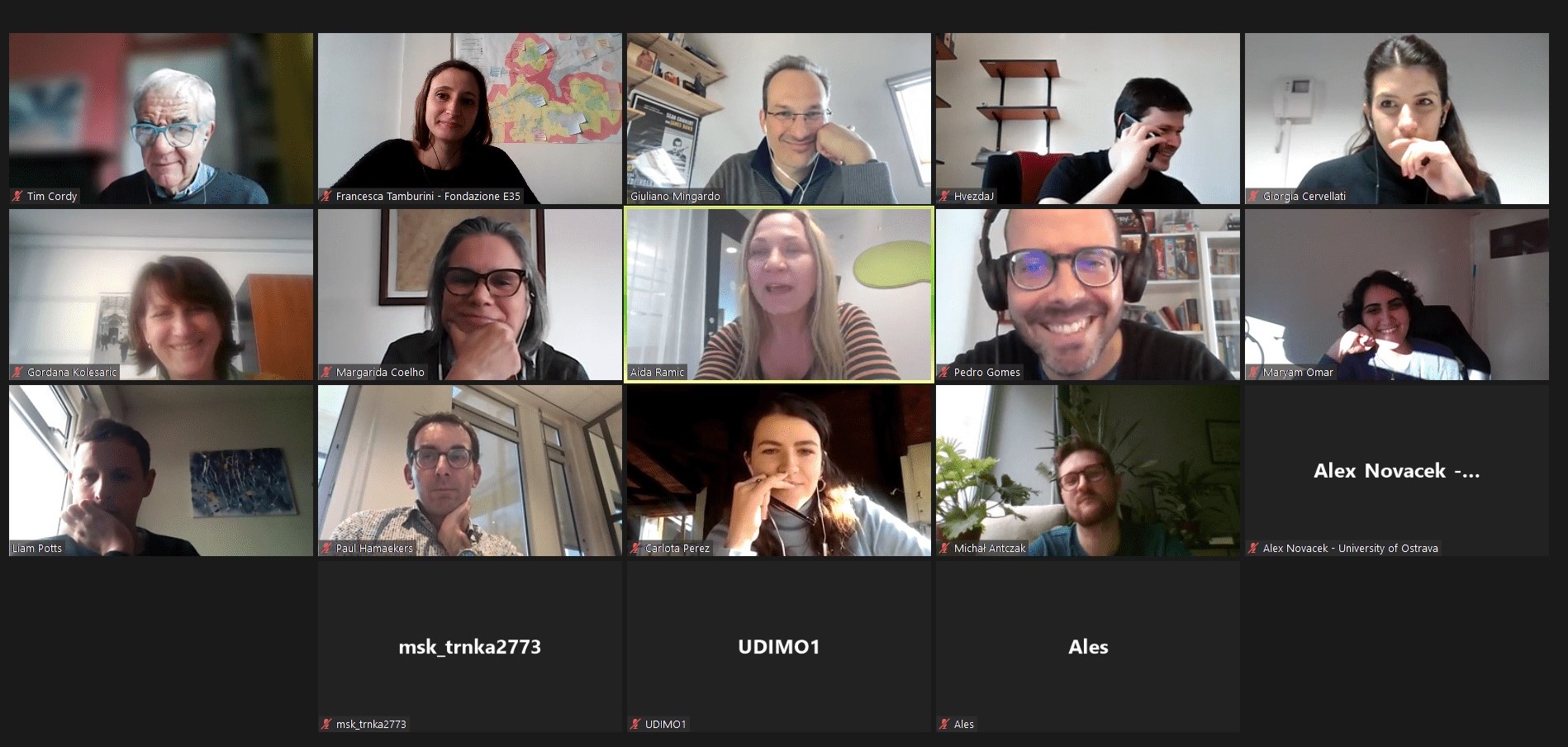
On 3rd March 2022, the Capacity Building Event of the Resolve project took place online
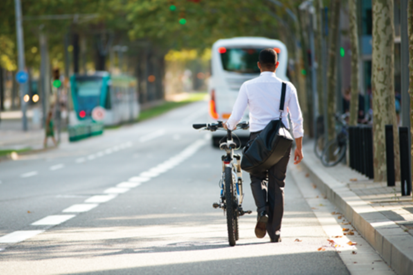
Second Peer Review
"Sustainable mobility and city center attractiveness”
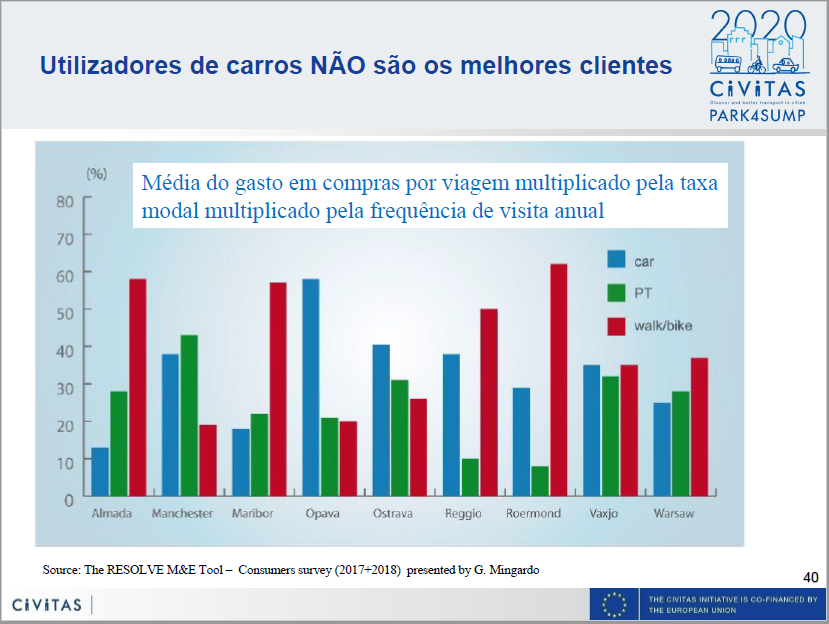
RESOLVE project presented in the Parking Policies Workshop in Portugal
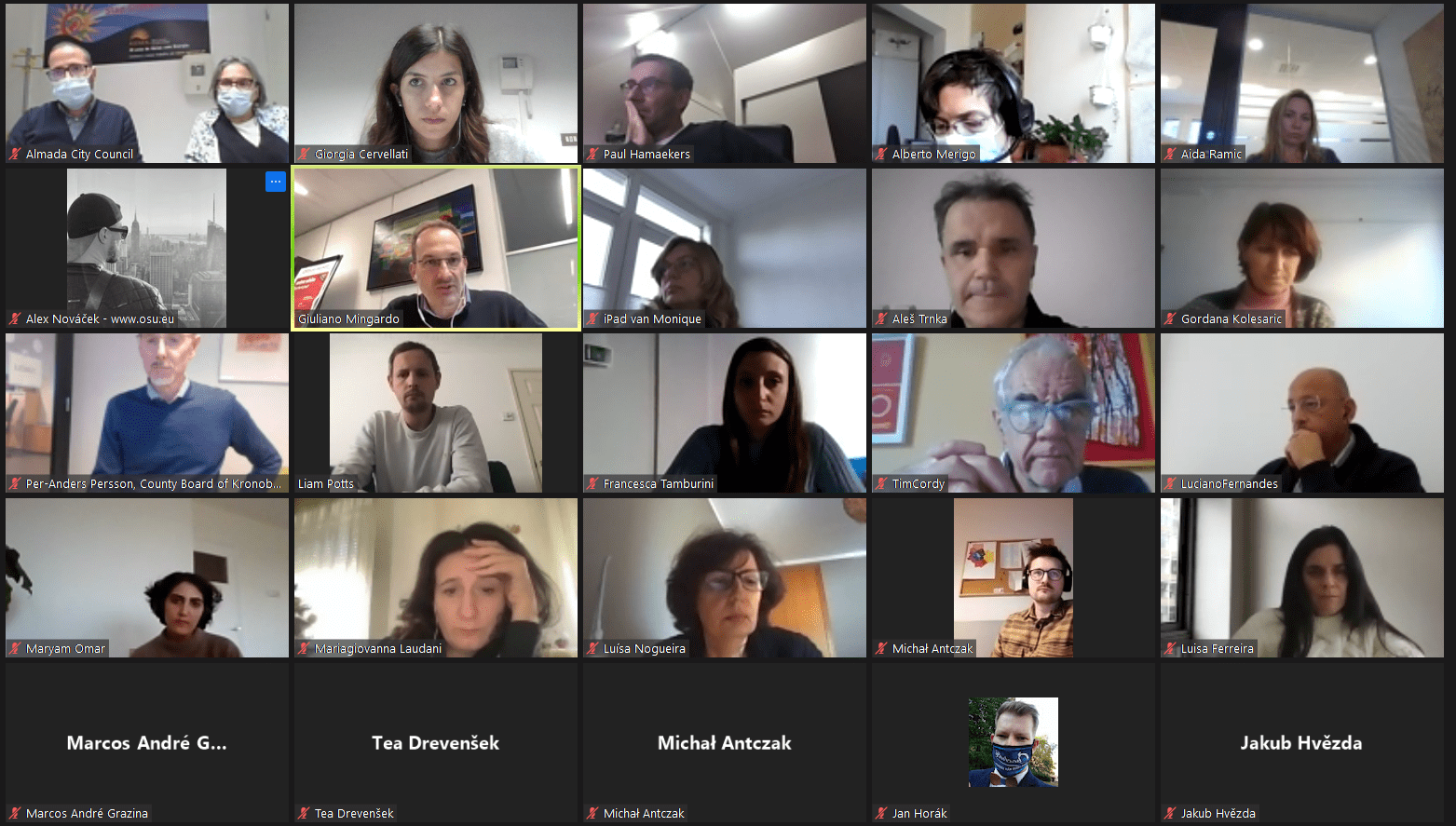
On 29th November 2021, the first of the two Peer Reviews (Green Urban logistics) of the RESOLVE Project took place online.
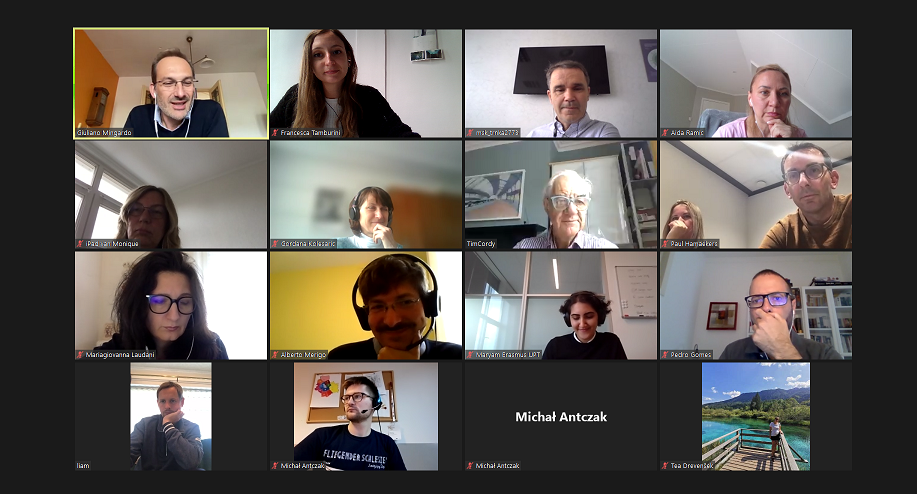
On 12 October 2021, RESOLVE partners virtually met again for the official launch of “RESOLVE+”, the one-year extension granted by the Interreg Europe Programme.
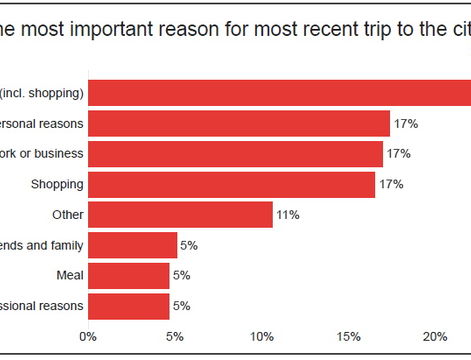
Encouraging results from the latest RESOLVE Survey in Almada
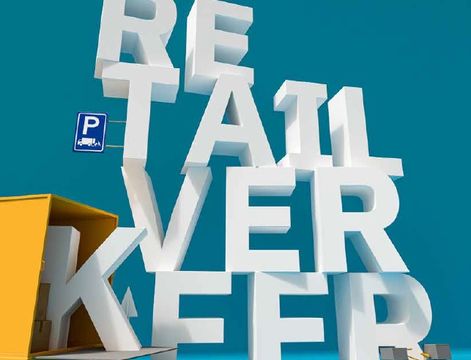
In October 2020, Dutch magazine Verkeerskunde published a special issue on Retail and Mobility where RESOLVE has a very prominent role.
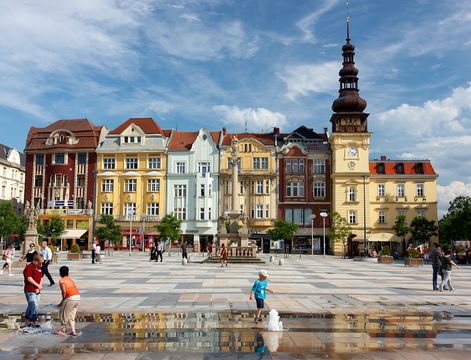
The final conference of RESOLVE project will take place in less than one week, on December 16th (9.00 - 12.30 CET).
Find out more about the agenda!
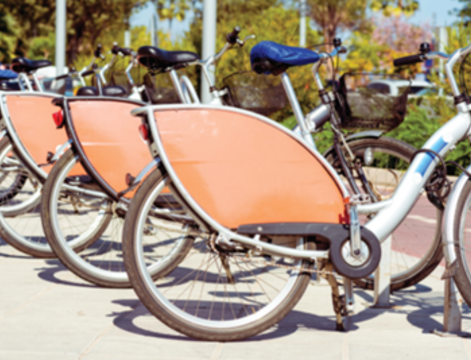
Regional Action Plan implementation in the statutory cities of Opava and Ostrava